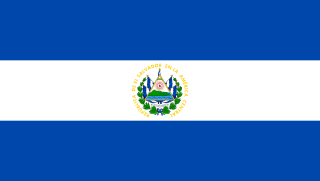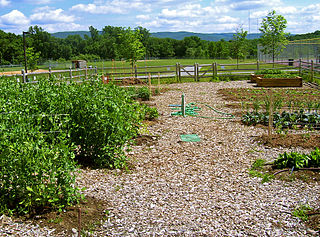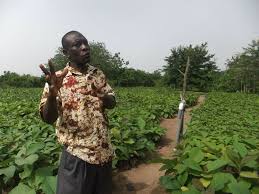This article needs additional citations for verification .(May 2018) (Learn how and when to remove this template message) |
The Permaculture Institute of El Salvador (IPES) is a grassroots organization of subsistence farmers, which registered as a Not for Profit Foundation with the government of El Salvador in 2002. The mission is to promote permaculture for the development of a healthier, wiser and more ecologically sustainable society. IPES started small. Relying on volunteers and small donations, it taught ecological farming to small groups of farmers in a handful of communities. Over the past years, they have expanded enormously to meet the rapidly growing demand from poor rural communities for ways of sustainable living and farming.

El Salvador, officially the Republic of El Salvador, is the smallest and the most densely populated country in Central America. It is bordered on the northeast by Honduras, on the northwest by Guatemala, and on the south by the Pacific Ocean. El Salvador's capital and largest city is San Salvador. As of 2016, the country had a population of approximately 6.34 million.

Permaculture is a set of design principles centered around whole systems thinking simulating or directly utilizing the patterns and resilient features observed in natural ecosystems. It uses these principles in a growing number of fields from regenerative agriculture, rewilding, community, and organizational design and development.

Ecological farming is recognised as the high-end objective among the proponents of sustainable agriculture. Ecological farming is not the same as organic farming, however there are many similarities and they are not necessarily incompatible. Ecological farming includes all methods, including organic, which regenerate ecosystem services like: prevention of soil erosion, water infiltration and retention, carbon sequestration in the form of humus, and increased biodiversity. Many techniques are used including no till, multispecies cover crops, strip cropping, terrace cultivation, shelter belts, pasture cropping etc.
IPES now teaches subsistence farming families to improve their environment and adapt to climate change, supporting their self sufficiency and food security by implementing sustainable agriculture practices. IPES strengthens community organisation and supports ecological community development, training community leaders in permaculture and promoting the active participation of women and young people in the ecological development of their communities. IPES also supports the formation of local permaculture networks of communities and organisations as well as supporting the development of local and national strategies for ecologically sustainable development. [1]

Climate change occurs when changes in Earth's climate system result in new weather patterns that last for at least a few decades, and maybe for millions of years. The climate system is comprised of five interacting parts, the atmosphere (air), hydrosphere (water), cryosphere, biosphere, and lithosphere. The climate system receives nearly all of its energy from the sun, with a relatively tiny amount from earth's interior. The climate system also gives off energy to outer space. The balance of incoming and outgoing energy, and the passage of the energy through the climate system, determines Earth's energy budget. When the incoming energy is greater than the outgoing energy, earth's energy budget is positive and the climate system is warming. If more energy goes out, the energy budget is negative and earth experiences cooling.
Food security is a measure of the availability of food and individuals' accessibility to it, where accessibility includes affordability. There is evidence of food security being a concern over 10,000 years ago, with central authorities in ancient China and ancient Egypt being known to release food from storage in times of famine. At the 1974 World Food Conference the term "food security" was defined with an emphasis on supply. Food security, they said, is the "availability at all times of adequate, nourishing, diverse, balanced and moderate world food supplies of basic foodstuffs to sustain a steady expansion of food consumption and to offset fluctuations in production and prices". Later definitions added demand and access issues to the definition. The final report of the 1996 World Food Summit states that food security "exists when all people, at all times, have physical and economic access to sufficient, safe and nutritious food to meet their dietary needs and food preferences for an active and healthy life".

Sustainable agriculture is farming in sustainable ways based on an understanding of ecosystem services, the study of relationships between organisms and their environment. It is a long-term methodological structure that incorporates profit, environmental stewardship, fairness, health, business and familial aspects on a farm setting. It is defined by 3 integral aspects which are: economic profit, environmental stewardship and social responsibility. Sustainability focuses on the business process and practice of a farm in general, rather than a specific agricultural product. The integrated economic, environmental, and social principles are incorporated into a “triple bottom line” (TBL); when the general impacts of the farm are assessed. Unlike a traditional approach where the profit-margin is the single major factor; Agriculture sustainability is also involved with the social and environmental factors.
IPES is also linked with the Permaculture Association (Britain) [2] and Permaculture Association Latin America. [3]







